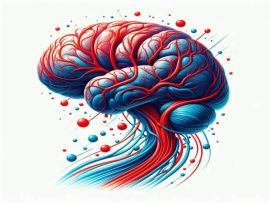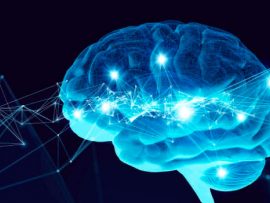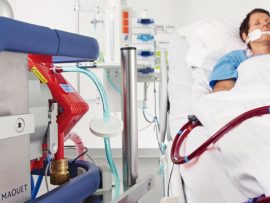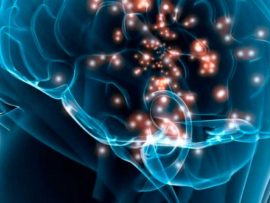Abstract To evaluate the feasibility of continuous determination of the optimal mean arterial blood pressure (opt-MAP) according to cerebral autoregulation and to describe the opt-MAP, the autoregulation limits, and the..
WeiterlesenAbstract Background: Cerebral blood flow (CBF) is believed to be relatively constant within an upper and lower blood pressure limit. Different methods are available to monitor CBF autoregulation during surgery...
WeiterlesenAbstract Background: Impaired cerebral autoregulation (CA) is one of several proposed mechanisms of acute brain injury in patients supported by extracorporeal membrane oxygenation (ECMO). The primary aim of this study..
WeiterlesenAbstract Background: Impaired cerebral autoregulation (CA) is one of several proposed mechanisms of acute brain injury in patients supported by extracorporeal membrane oxygenation (ECMO). The primary aim of this study was..
WeiterlesenAbstract Background Impairment of cerebral autoregulation (CA) has been observed in patients undergoing cardiopulmonary bypass (CPB), but little is known about its risks and associations with outcomes. The cerebral oximetry..
WeiterlesenAbstract Impaired cerebral autoregulation (CA) can cause negative outcomes in neurological conditions. Real-time CA monitoring can predict and thereby help prevent postoperative complications for neurosurgery patients, especially those suffering from..
WeiterlesenAbstract Clinicians caring for children with cardiopulmonary failure using extracorporeal membrane oxygenation (ECMO) are refining bedside clinical practices by focusing on minimizing morbidity associated with neurologic complications. Neurologic complications are the main drivers of survival..
WeiterlesenAbstract Validation of a real-time monitoring device to evaluate the risk or occurrence of neurologic injury while on extracorporeal membrane oxygenation (ECMO) may aid clinicians in prevention and treatment. Therefore,..
WeiterlesenAbstract Background Cardiac surgery studies have established the clinical relevance of personalised arterial blood pressure management based on cerebral autoregulation. However, variabilities exist in autoregulation evaluation. We compared the association..
WeiterlesenAbstract Background Rewarming on cardiopulmonary bypass (CPB) is associated with increased metabolic demands; however, it remains unclear whether cerebral autoregulation is affected during this phase. This RCT aims to describe..
WeiterlesenAbstract Background Cerebral autoregulation (CA) impairment is associated with neurological complications among children supported by extracorporeal membrane oxygenation (ECMO). Severe variations of arterial CO2 (PaCO2) and O2 (PaO2) tension after ECMO onset..
WeiterlesenAbstract Backgroundː Impairment of cerebral autoregulation (CA) has been observed in patients undergoing cardiopulmonary bypass (CPB), but little is known about its occurrence and associations with outcomes. The objective of this..
WeiterlesenAbstract Background Cerebral autoregulation mechanisms help maintain adequate cerebral blood flow (CBF) despite changes in cerebral perfusion pressure. Impairment of cerebral autoregulation, during and after cardiopulmonary bypass (CPB), may increase..
WeiterlesenAbstract OBJECTIVES: Monitoring cerebral autoregulation may help identify the lower limit of autoregulation in individual patients. Mean arterial blood pressure below lower limit of autoregulation appears to be a risk..
WeiterlesenAbstract Objectives We sought to define the lower and upper limits of cerebral blood flow autoregulation and the optimal blood pressure during cardiopulmonary bypass. We further sought to identify variables..
WeiterlesenAbstract Despite a rise in blood pressure, cerebral oxygenation decreases following phenylephrine administration, and we hypothesised that phenylephrine reduces cerebral oxygenation by activating cerebral α1 receptors. We studied patients on cardiopulmonary..
WeiterlesenAbstract BACKGROUND: Individualizing mean arterial blood pressure (MAP) based on cerebral blood flow (CBF) autoregulation monitoring during cardiopulmonary bypass (CPB) holds promise as a strategy to optimize organ perfusion. The..
WeiterlesenSummary This aim of this prospective observational cohort study was to evaluate any association between postoperatively impaired cerebrovascular autoregulation and the onset of delirium following cardiac surgery. Previous studies have..
Weiterlesen








